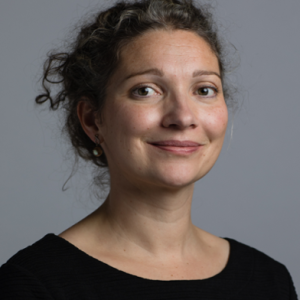Dr. Erin Jessee is a senior lecturer at the University of Glasgow. Her research focuses on genocide and related mass atrocities, transitional justice, Rwandan history and African history, gender, and oral history ethics and methods. She is the author of Negotiating Genocide in Rwanda: the Politics of History (Palgrave studies in oral history, Palgrave Macmillan, 2017) and, with Annie Pohlman, Oral Histories of Genocide in Bosnia, Indonesia and Rwanda: Symbolic Violence and Social Death (Oxford University Press, forthcoming).
In the lecture, Jessee reflects on her efforts over the past two decades to find ways to engage ethically with people’s narratives of “political violence”: a term that encapsulates violations ranging from the everyday structural inequalities endured by marginalized minority communities to full-blown genocides aimed at exterminating national, ethnic, racial and/or religious groups. She begins with an overview of the emergent “crisis oral history” sub-field, which builds upon a long-standing practice of using oral history methods to preserve and amplify the narratives of people whose lives have been negatively impacted by crisis. As the sub-field coalesces, practitioners are increasingly discussing the ethics of research in contexts in which the “best practices” associated with more low-risk oral history specializations may be compromised. Crisis oral history methods and end results can differ as a result, as practitioners strive to work with crisis-affected people without exposing them to unwarranted risks.
In discussing how crisis oral historians adapt oral history’s best practices, Jessee incorporates examples from her research in post-genocide Rwanda, but also other crisis-affected contexts internationally. Her insights are informed by a forthcoming chapter on crisis oral history, co-authored with Hourig Attarian, Kathryn Nasstrom, and Monica Patterson, and the larger Bloomsbury Oral History Handbook that she has co-edited with Alexander Freud and Alistair Thomson, in which this chapter will feature. In the process, she advocates for a trauma-informed approach that simultaneously prioritizes the well-being of the researcher and the people who contribute to their research. This paper is a timely intervention: at present, while some oral historians actively choose to study political violence, others find themselves unexpectedly immersed in it, particularly as tyrannical leaders in different global contexts are emboldened to retreat from international commitments aimed at upholding social justice and equality, and alleviating environmental disasters and conflicts within and beyond national borders.
The lecture will be followed by a response from Dr. Susanne Knittel.
Time schedule
15:15: Arrival and welcome coffee/tea
15:30: Start lecture
17:00: Drinks until 18:00
All are welcome to attend; please register in advance with the Huizinga Institute via [email protected]
PhD candidates and RMA students attending this lecture are warmly invited to also join the workshop on Thursday, 30 October 2025: ‘Trauma-Informed Oral History’ with Erin Jessee (2 ECTS)
This lecture is an initiative of the Huizinga Research Network Oral History




